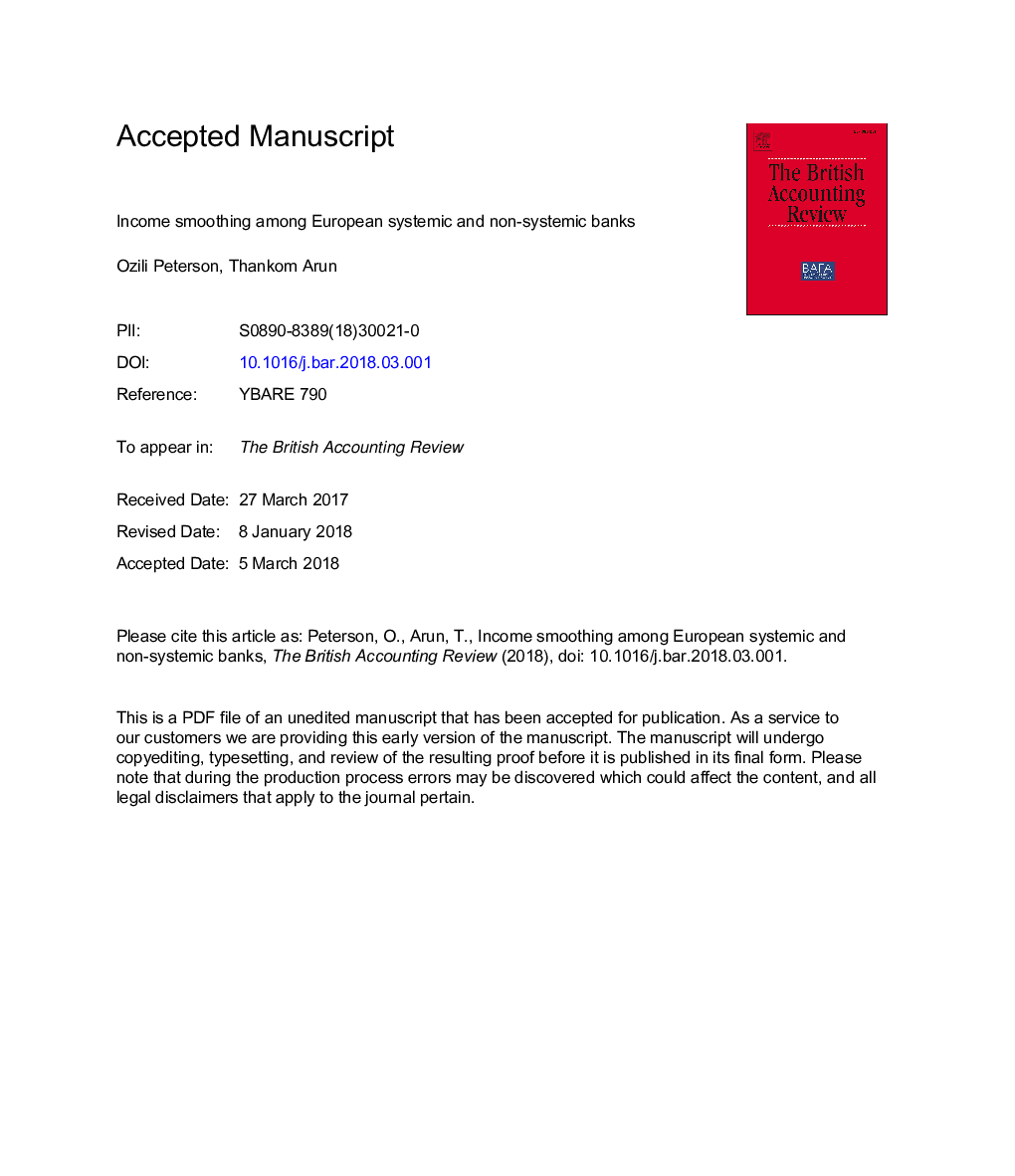| Article ID | Journal | Published Year | Pages | File Type |
|---|---|---|---|---|
| 8954649 | The British Accounting Review | 2018 | 35 Pages |
Abstract
There is scant research on the financial reporting behaviour of global systemically-important banks (G-SIBs) and non-global systemically-important banks (non-G-SIBs). We examine the link between financial reporting and financial system stability given the understanding that income smoothing is a stability mechanism for banks. We empirically examine whether the way G-SIBs use loan loss provisions (LLPs) to smooth income differ compared to non-G-SIBs and the incentive to do so. We examine 231 European banks and find that income smoothing is pronounced among G-SIBs in the post-crisis period and pronounced among non-G-SIBs in the pre-crisis period. Also, G-SIBs exhibit greater income smoothing when they: (i) have substantial non-performing loans, (ii) are more profitable and meet/exceed minimum regulatory capital ratios (iii) engage in forward-looking loan-loss provisioning and during recessionary periods. The implication of our findings is that capital regulation and abnormal economic fluctuations create incentives for systemic banks to use accounting numbers (loan loss provisions) to smooth income, which also align with the financial system stability objective of bank regulators. Our findings are useful to accounting standard setters in their evaluation of the role of reported accounting numbers for financial system stability, given the current regulatory environment in Europe which focuses on systemic banks.
Keywords
Related Topics
Social Sciences and Humanities
Business, Management and Accounting
Accounting
Authors
Ozili K. Peterson, Thankom G. Arun,
